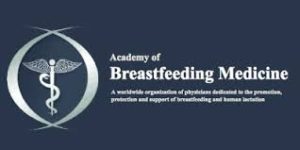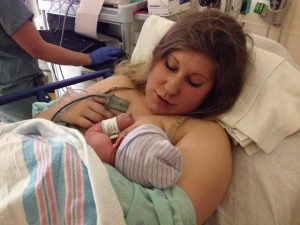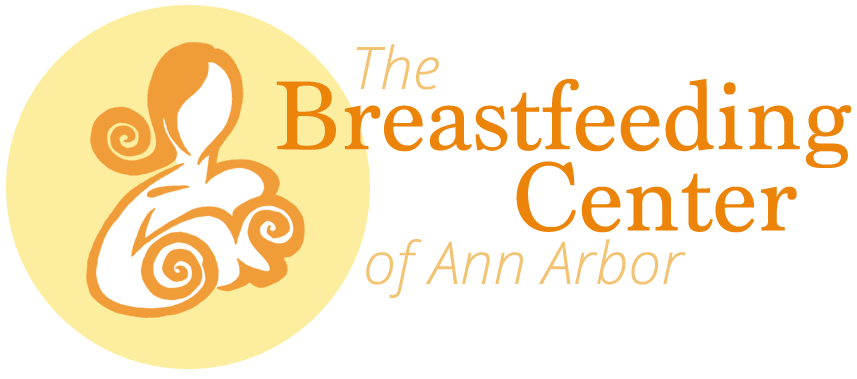Breastfeeding and depression?
 I just read this article about breastfeeding and depression from the Academy of Breastfeeding Medicine. May 2nd is World Maternal Mental Health Day. I have actually been thinking a lot about this. Where is the line between working really hard to succeed at something and driving yourself crazy? Breastfeeding can be so hard in the beginning. It can feel like all the work of breastfeeding, especially for the moms who are doing triple the work, breastfeeding, supplementing, and then pumping or hand expressing, is way too much. I am worried that the pay off, breastfeeding moving into being easy, may not be worth it for those moms where it never does become easy.There are no guarantees that the work is going to pay off.
I just read this article about breastfeeding and depression from the Academy of Breastfeeding Medicine. May 2nd is World Maternal Mental Health Day. I have actually been thinking a lot about this. Where is the line between working really hard to succeed at something and driving yourself crazy? Breastfeeding can be so hard in the beginning. It can feel like all the work of breastfeeding, especially for the moms who are doing triple the work, breastfeeding, supplementing, and then pumping or hand expressing, is way too much. I am worried that the pay off, breastfeeding moving into being easy, may not be worth it for those moms where it never does become easy.There are no guarantees that the work is going to pay off.
And what is my role is all of this? Hopefully, I am a source of support and ideas. I do have so many families come to me that “have tried everything”, ie, what they have found on the internet or advice from family and friends, and I can help them tremendously. The knowledge base I have built up from my years of clinical experience, going to conferences, and reading my google alerts (how I found the above article), have kept me on the cutting edge of what we feel is working and what is not to help move the breastfeeding relationship forward. I know my back ground in education, in teaching, helps me. How I convey the information I have to share is important. I have been practicing and teaching Motivational Interviewing skills for the past 5 years or so and been studying mindfulness and meditation. These communication techniques have helped me focus in on the parent’s goals and give them the information they need to make decisions about what to do next for their babies.
 I believe in breastfeeding. I believe it is biologically designed to work. If you can grow a whole baby, breastfeeding should be a piece of cake. And yet… And yet, so many parents are struggling. With babies who can’t latch or breastmilk supply. Pain, that, I can almost always help resolve but not necessarily those other issues. Usually I can help for sure. But resolve? Move into that place of ease? Of breastfeeding becoming thoughtless, an activity of daily living?
I believe in breastfeeding. I believe it is biologically designed to work. If you can grow a whole baby, breastfeeding should be a piece of cake. And yet… And yet, so many parents are struggling. With babies who can’t latch or breastmilk supply. Pain, that, I can almost always help resolve but not necessarily those other issues. Usually I can help for sure. But resolve? Move into that place of ease? Of breastfeeding becoming thoughtless, an activity of daily living?
I feel that many of the problems that families come in with start long before I become part of the picture and add to increased depression and anxiety. Our culture says breast is best but frowns upon breastfeeding in public, spends very little money supporting breastfeeding when parents have problems, has no maternity leave policies, and supports birthing practices that are not in the best interests of mothers and babies. Do you know that maternal death is on the rise in the US? We, the leaders in so many areas of technology, are also the leaders of maternal death in the developed world. I do feel like so many of my parents had planned on a very different birth than the one they ended up with. Literally, I have mothers who come in with PTSD (post traumatic stress disorder) from their births. You can develop PTSD when you feel out of control and are in fear of death, yourself or your baby’s, and isn’t this often the story of birth in the United States? I am a huge fan of midwives and doulas. I think they help mitigate this scenario.

So I have families that come in to me that have already been traumatized and often have had a healthy, normal birth taken from them by a medical system that does not see birth as a normal human function. I am very thankful that we have life saving medical technology but we all know way too many c-sections and inductions are still going on when they are not medically needed. After a birth experience that what not expected, breastfeeding can become a holy grail for many families. Breastfeeding takes on maybe too much meaning. Successful breastfeeding is a sign that their bodies have not failed them, that they are good parents, that they want what’s best for their babies. There is an air of desperation and anxiousness about these families that can be felt in the room. Research shows that these kinds of experiences can lead to or make worse depression and anxiety.
Most families want to breastfeed. At least 85% of parents are ready to give breastfeeding a good try before their babies are born. Where are we letting these mothers down? How can we best help? I believe it is time to stop telling families breastfeeding is healthiest for their babies and then be willing to invest in the services they need to provide the support for success. Am I making depression and anxiety worse for families? Again, I hope not. But I do wish I didn’t feel like I was working alone to help these families reach their breastfeeding goals. Such a cliche, but it does take a village. Having one day a year focusing on maternal health is not nearly enough.
